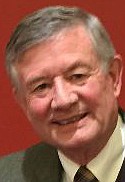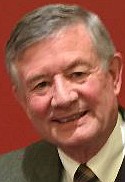The arts and our worldview
I would hope that our column last week on creation versus an evolutionary beginning laid the groundwork for a Theistic worldview. For instance, the Christian worldview affirms the existence of an ordered, physical universe created by an eternal, transcendental, personal God, who is inherently benevolent, loving and thoughtful. This God has instilled in people the ability to engage in rational or logical thought and empirical observation. We reject the pessimism of philosophers and theologians from the 19th and 20th century that gave us a worldview that said life is meaningless. Nihilism says everything is meaningless. It denies the possibility of any objective truth or knowledge.
This view spread to the arts such as painting. Picasso’s painting expressed well the concept of a fragmented world and fragmented man. Duchamp realized the absurdity of all things includes the absurdity of art itself. His “ready-mades” were any object near at hand; which he simply signed. It could be a bicycle wheel or a urinal. Thus art itself was declared absurd. Jackson Pollack is perhaps the clearest example. He placed canvases horizontally on the floor and dripped paint on them from suspended cans swinging over them. Thus, his painting were a product of chance, like all creation. Just last year an artist duct taped a banana to a wall and priced it at $120,000 — there were three editions and two had been sold! Some art is more deliberate. Some art is more direct in the message. The artist Serrano in 1987 submerged a crucifix in a jar of his urine. An awful message about creation and God’s redemptive plan.
Many of these “schools of art” are a kind of postmodernism which sets out to overturn all rules, reasoning and morality. It is the rejection of the divine, and the attempt to replace God as the starting point for understanding human life. Similar methods were adopted to ruin music. Authentic music conforms with musical theory and order. In modern music there is perpetual variation and no resolution. This stands in sharp contrast to Bach who, on his biblical base, had much diversity but always resolution. Bach’s music had resolution because as a Christian he believed that there will be resolution both for each individual life and for history. As Martin Luther said, “Music is a discipline, and a mistress of order and good manners, she makes the people milder and gentler, more moral and more reasonable.” Compare this to a “concert” by two Cal Arts college students. They employed a damaged radio from which emitted squawks and bursts of static — as well as a poorly tuned cello that was strummed like a guitar. This cacophony was accompanied by hammering on a five-gallon jug. It was clear their worldview was showing through. When asked about their life view, it wasn’t surprising to find they believed in a chance universe. By their “music,” they expressed their chaotic view of the universe. Does that “music” remind you of what you hear today?
Why is all of this important to our worldview? It hasn’t always been this way and this is basically what happened in American education and subsequently the culture of America. Its Christian roots shifted radically to a foundation of Naturalism. No God. No Creator. No Divine purpose. And with Secular Humanism, the notion of the individual “spark of divinity” provided a faux meaning and purpose that Naturalism lacked. That “divine spark” has now grown into a raging fire as our culture embraces Homo Deus and the “i am” of personal deity, where the individual is granted the status of a god, who can, by divine decree, establish their own personal pronoun and gender identity. As Charles Colson said, “When the God of the Bible is rejected, people choose a new god.”
“Finally, brothers, whatever is true, whatever is honorable, whatever is just, whatever is pure, whatever is lovely, whatever is commendable, if there is any excellence, if there is anything worthy of praise, think about these things.” — Philippians 4:8
• • •
Bob Shillingstad’s columns appear Saturdays in The Press. Email Bob: bjshill@mac.com



